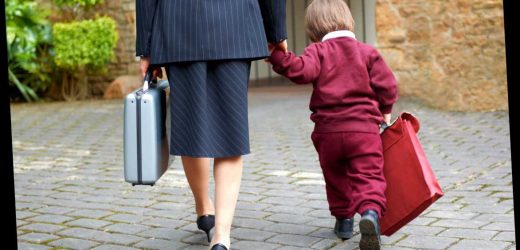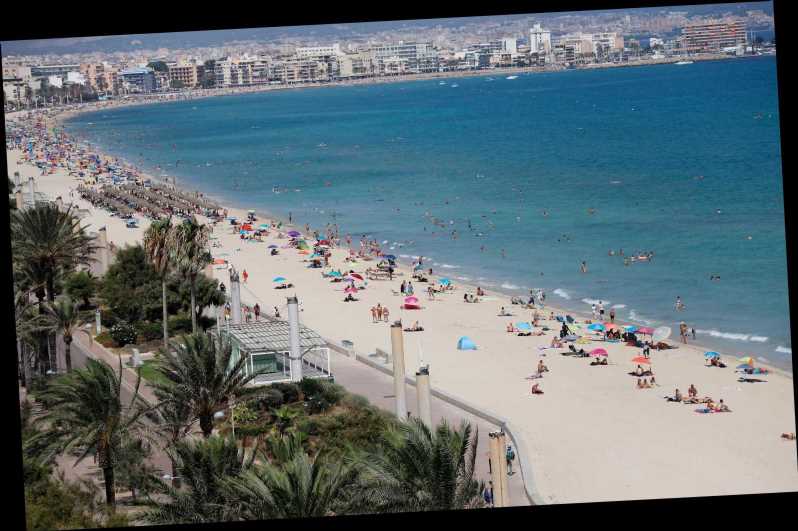BORIS Johnson has confirmed that children of key workers and those who are vulnerable can go to school during the third lockdown.
But do key workers need a letter so their children can go to school?
⚠️ Read our coronavirus live blog for the latest news & updates
Do key workers need proof to get their kids in schools?
Primary and secondary schools, as well as colleges, will close immediately and stay shut for a month in the new lockdown, Boris Johnson announced yesterday.
The PM revealed the tougher new national restrictions in an address to the nation, with classrooms expected to shut until mid-February half term.
It comes after new data revealed schools have triggered three times more Covid outbreaks than hospitals since October.
Reports revealed that 26 per cent of investigated Covid cases were linked to nursery schools, primaries, secondaries and universities over the 12 weeks to the end of December, according to Public Health England.
However, colleges, primary and secondary schools will remain open for vulnerable children and the children of critical workers.
All other children will have to learn remotely until February half term.
The Department of Education told The Sun that they "expect schools to work with parents" to make sure that critical workers get their kids into classrooms during the lockdown.
This means you may need to write a letter to send in with your child, explaining your job and how you are a critical worker.
But to be safe, speak to your child's school and headteacher directly to see if any further proof of your key role is required.
Who is classed as a key worker?
Parents whose work is critical to the coronavirus and EU transition response are classed as critical workers by the Government.
These include those who work in health and social care, education, and key public service.
- Health care workers, including: doctors, nurses, midwives and paramedics, producers and distributors of medicines and medical and personal protective equipment.
- Social care workers, including: social workers, care workers, and other frontline health and social care staff including volunteers
- Education and childcare workers, including: childcare, support and teaching staff, social workers, and specialist education professionals who must remain active during the coronavirus (COVID-19) response to deliver this approach
- Key public service workers, including: those essential to the running of the justice system, religious staff, charities and workers delivering key frontline services, those responsible for the management of the deceased, and journalists and broadcasters who are providing public service broadcasting
- Local and national government workers, only including administrative occupations essential to the effective delivery of: the coronavirus response, and the delivery of and response to EU transition, and essential public services, such as the payment of benefits and the certification or checking of goods for import and export
- Food and other necessary goods workers, including those working in production, processing, distribution, and sale and delivery
- Public safety workers, including: police and support staff, Ministry of Defence civilians, contractor and armed forces personnel, fire and rescue service employees, National Crime Agency staff, those maintaining border security, prison and probation staff
- Utilities, communication and financial services, including: staff needed for essential financial services provision, the oil, gas, electricity and water sectors, information technology and data infrastructure sector, key staff working in the civil nuclear, chemicals, telecommunications, postal services and delivery, payments providers, waste disposal sectors
In the bleak statement to the country last night, Mr Johnson also said that exams for A-Level and GCSE students would have to be changed.
He said: "In the circumstances, we do not think it is possible for all exams in the summer to go ahead as planned.
"We will accordingly be working with Ofqual to consult rapidly to put in place alternative arrangements that will allow students to progress fairly."
Nurseries will stay open during the national lockdown, as will schools for special needs students.
This comes after the Covid-19 alert level was raised to five – the first time it has hit the highest rating.
It means that without immediate action there is a “material risk” of healthcare services being overwhelmed within three weeks.
The UK recorded 58,784 Covid cases yesterday- its highest ever daily figure – as new infections passed the 50,000 mark for the seventh day in a row.
Cases have remained high for a week now as hospitals struggle to cope with patient numbers – with 407 new deaths yesterday.
Ex-Health Secretary Jeremy Hunt said the country is facing a "national emergency" over the new variant of coronavirus.
He added: "I think we have got to recognise we have a very, very virulent new strain and it is a national emergency and we are going to need to go a lot further and a lot faster and the sooner we take these tough measures the better."
Source: Read Full Article





